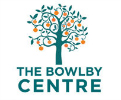Guidelines for Teachers
THE BOWLBY CENTRE EQUAL OPPORTUNITIES AND TEACHING
Equal opportunities is not about political correctness or policing, it is about developing awareness of the real world issues that face our clients and which exclude many from therapeutic support. As a teacher at The Bowlby Centre you are role modelling the values of the organisation to the students and facilitating learning around the nuances of difference and power that are an inevitable part of therapeutic practice. The diverse ‘make up’ of the group that you are teaching may not be readily apparent. The Bowlby Centre has a commitment to accessibility and equality for all which means that we share the responsibility for anti-discriminatory practice in relation to race, gender, sexuality, age, (dis)ability, religion, class, educational and learning style and so forth.
Some things to consider:
- The Curriculum – does your particular course reflect diverse perspectives? Can additional material be signposted to supplement this? Ensuring that material is contextualised in terms of socio-cultural bias, for example where statistics see overrepresentation of certain communities explaining why in relation to historical context or who is making the assessment.
- Acknowledging bias or uncomfortable use of language – for example some very useful papers are incredibly Eurocentric, written from the perspective of heterophilia or pathologising of certain groups.
- Composition of the group you are teaching – are there ways in which the group could be made to feel safer for all members? As a teacher it may be important for you to suggest perspectives other than that of the majority – members of minority groups may feel silenced, you may be teaching a group with only one black member, or where gay and lesbian students are in the minority. (The Bowlby Centre is currently engaged in outreach and development to address the lack of representation of certain communities in the student body).
- The relationship between the group members and the subject matter – Noticing what (or who) is absent or silent for example in an all, or predominantly white, or single gender group.
- Ensuring that someone from a minority within the group does not end up having to hold sole responsibility for voicing that perspective – for example a black student habitually having to speak about race issues or a gay student having to make the rest of the group aware that the material is excluding.
- Conflict and Challenge – Whilst exploring the (often evocative) theoretical material teachers have the tough job of managing the tension between the values that we uphold at The Bowlby Centre and encouraging creativity and diversity. This means facilitating difference of opinion whilst engendering a non silencing and safe learning environment. It can be freeing to remember that we all carry with us the prejudices of our upbringing within our given familial and socio-cultural context and in voicing what we feel may at times be unaware of how this impacts upon others. Things can be said in the heat of the moment that we may later regret. None of us are perfect and concepts of respect, ‘rupture and repair’, and collegiality can be helpful in the way that we share our thoughts and opinions and in coming back from the inevitable breaches between us and colleagues. It is also important to be clear on what constitutes a serious breach of our values? (racism, sexism, homophobia, disability discrimination, pathologising and so forth are not acceptable).
- Coherence of feedback so that this can be used as a learning tool – please give the same feedback to the student and the course tutor.
- Equality of feedback to all students and giving feedback that is non-pathologising and constructive in keeping with The Bowlby Centre values.
- When the teacher feels marginalised. You are not alone! – Talk to your colleagues, course tutor, and TAG representative.
EOAG 2009
